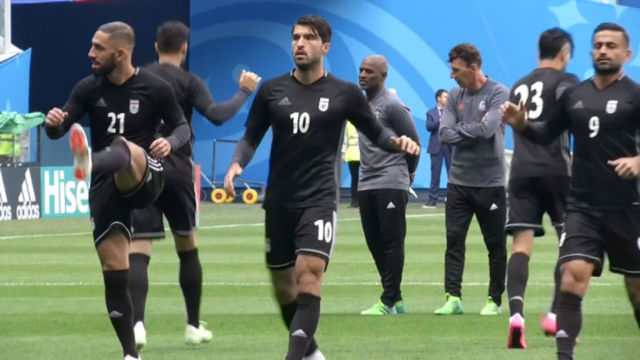For the millions of people watching the 32 teams compete for the 2018 World Cup in Russia, they will also bear witness to international politics at play.
World Cup 2018 is hosted by Russia–a country that has captured headlines recently for both its domestic and international politics and policies. In March, the U.K. imposed a diplomatic boycott of the tournament, refusing to send ministers or members of the royal family, to the World Cup following the poisoning of a Russian former spy in Britain.
During this 2018 World Cup, Iran faced complications based on politics before they even hit the pitch. Nike refused to supply the Iranian team of equipment based on ongoing U.S. sanctions against Tehran.
History, has proven however, that this is not the first time politics and the World Cup have collided.
West Germany hosted the World Cup in 1974 and played East Germany while a concrete wall still separated the two in Berlin–another 15 years would pass until its fall.
Argentina hosted the tournament in 1978—two years after a coup, and amid widespread reports of extrajudicial killings and torture carried out by its military dictatorship.
In 1982 the U.K. considered—but ultimately did not—pull its teams out of the World Cup held in Spain over its island war with Argentina.
 CGTN America
CGTN America

